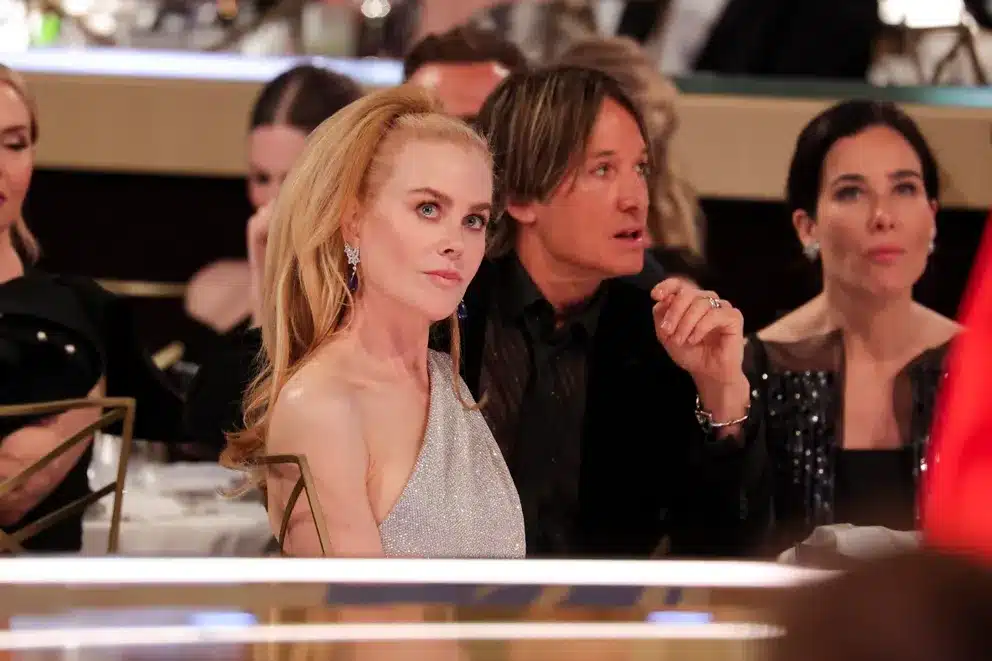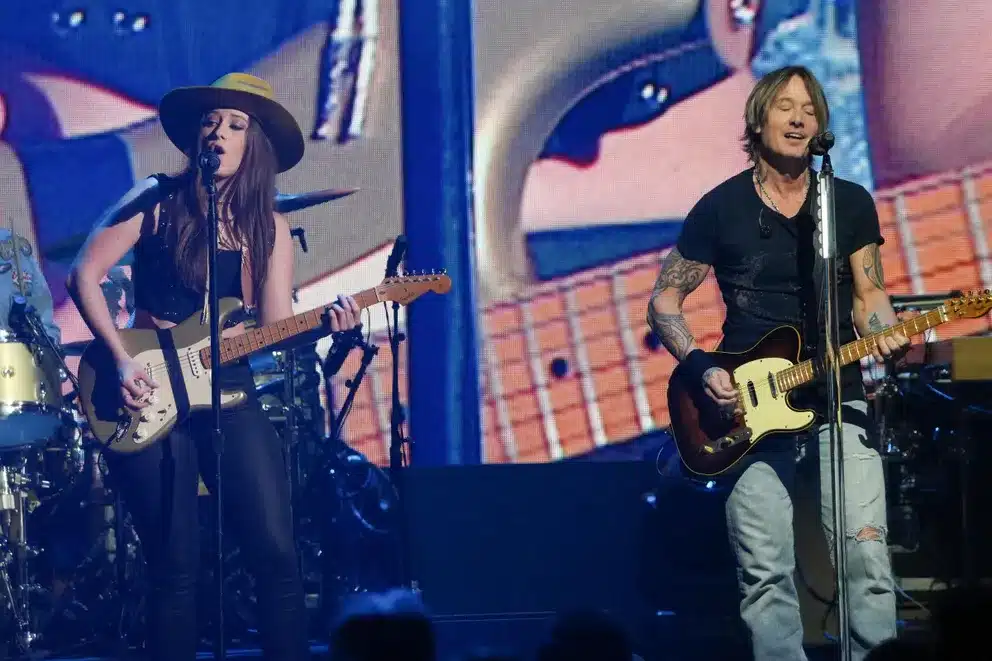The moment was small—a single swapped word in a stadium full of noise—but it set the internet on fire. During a recent performance of “The Fighter,” a song long linked to his marriage to Nicole Kidman, Keith Urban slipped in a new name: rising country artist Maggie Baugh. Within hours, the clip spread across social feeds, and curiosity about the “mystery muse” exploded.
Baugh’s sudden spotlight looked like an overnight phenomenon, but her path has been anything but instant. Raised in Boca Raton, Florida, she started on classical violin at six, trained in orchestras, and learned the discipline of sheet music before a simple suggestion from her teacher—try guitar—rerouted her life. By thirteen she was making regular trips to Nashville, writing her own songs, and releasing a first record while most kids were learning locker combinations. At eighteen, she moved to Music City for good, chasing the autonomy and directness she couldn’t find in the concert hall. The result was a steady DIY climb, including her independently produced album “Entertainers Heart.”
Her breakout moment with younger audiences arrived on TikTok. Initially skeptical of the platform, she launched a playful guitarist’s take on the “finish the lyric” trend: “Finish the Lick.” Filmed casually in her room with help from a neighbor, the series showcased her speed, tone, and quick-fire riffing—and it blew up. Tens of thousands of followers arrived in weeks, millions of views followed, and her online momentum began to match the energy she’d always preferred on the road. For Baugh, the metric that matters is still the crowd: the cheering, the connection, the adrenaline of a stage well worked.
The hustle goes back even further. At eleven, she auditioned for “America’s Got Talent” in Austin. She didn’t make the show, but the detour turned into a defining origin story: busking on Sixth Street with her fiddle, drawing a crowd, and making enough in tips to buy her first guitar—the instrument that would become her livelihood.
Urban entered her story in a bigger way when he recruited her as a multi-instrumentalist for televised appearances and tour dates, specifically seeking a player who could handle both guitar and fiddle. She calls the experience “rock star school,” the kind of on-the-job master class that sharpens timing, arrangement instincts, and stagecraft in real time. As her own “Entertainers Heart” headlining tour grew—sixty dates and counting, including international stops—she still circled back to share stages with Urban, posting from a Chicago show: “It is always a blast hanging with Keith and the Crew… Y’all let’s GO.”
Then came the lyric change, and with it, a torrent of interpretation. In the viral clip, the line “When they’re tryin’ to get to you, baby, I’ll be the fighter,” becomes, “When they try to get to you, Maggie, I’ll be your guitar player.” Comment sections flooded with speculation, some commenters drawing lines between the ad-lib and Urban’s recent divorce news, others leaping to blame Baugh outright. The tone ranged from side-eye to scorn—accusations, armchair analysis, and a familiar internet arc from curiosity to conclusion.
It’s worth remembering what Urban has said about “The Fighter.” Years before this moment, he described the song as born from real conversations with Kidman—fears, vows, and promises spoken aloud as their relationship deepened.
“She liked it,” he said in 2018. “It was such an easy song to write because it was born of real conversations Nick and I had had before we got married… me wanting to be able to make vows to her—promises to her that I knew I could keep.”
He went further:
“In a lot of ways, the song feels like vows… ‘this is what I promise I’ll be and do, and I’ll take care of you and keep the world away,’ and it was very easy to write from that perspective.”
In other words, the track’s original spirit is no secret. What a spontaneous shout-out means now—musical camaraderie, tour-family chemistry, a simple nod to a bandmate in the moment—depends on the lens through which fans choose to watch. The online reaction says as much about the audience’s appetite for narrative as it does about the artists themselves.
As for Baugh, the whirlwind hasn’t changed the fundamentals. She’s still the classically trained kid who swapped etudes for verses, the busker who bought her first guitar with tip money, the road-tested player whose fingers move faster than a comment thread. A single onstage aside may have pulled her into a bigger conversation, but the work—the songs, the tours, the daily practice—was already in motion long before the world pressed play.







